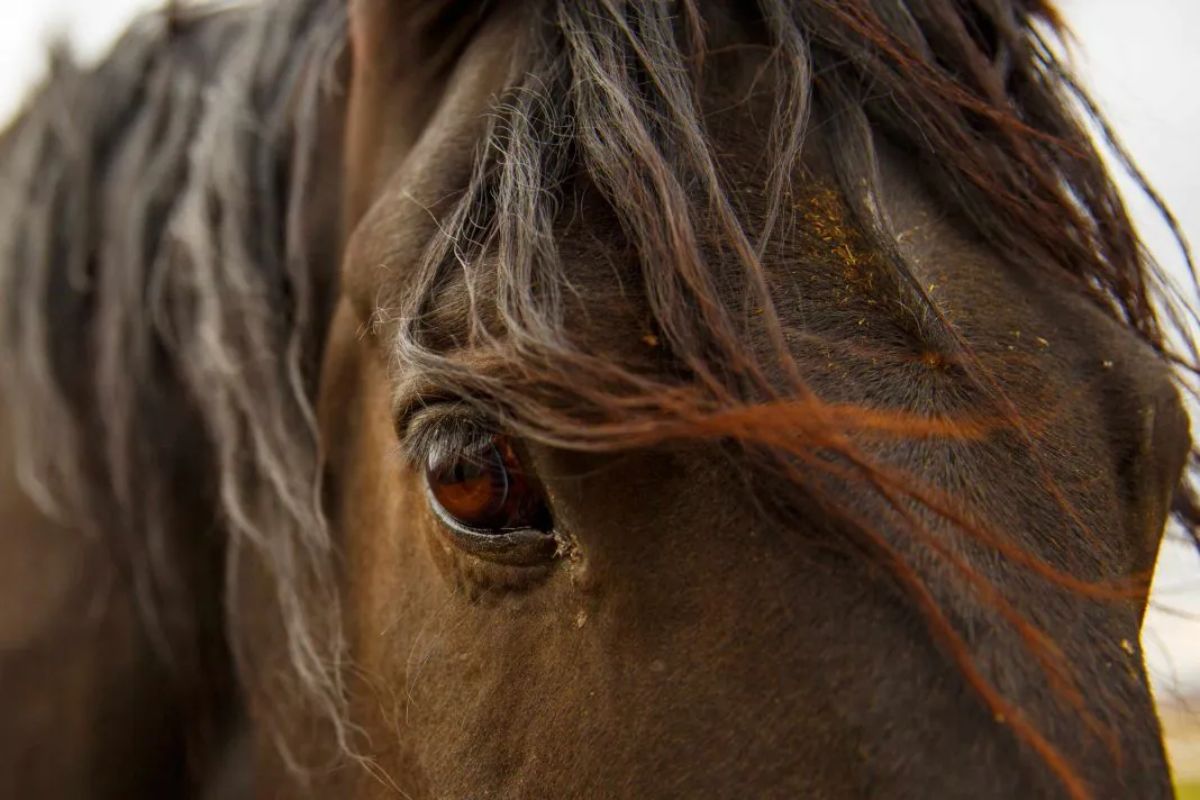Menu

"My horse was so good in his jumps today! He must've thought he needed to pull himself together after his cheekiness yesterday."
"My horse just never stays still in the stable. It's as if he's trying to get out of a ride."
"I told my horse not to lose his shoes, yet he does it – and of course, just after the farrier has been."
"My horse always finds the biggest mud puddle to roll in when he's just been given a clean blanket. It's as though he thinks it's a sort of initiation."
You've surely heard something like this before - and maybe even said or thought it yourself? Just as we often do with our dogs or cats, we equestrians and horse owners tend to attribute feelings, thoughts, and motives to our horses. Mostly, we do this trying to understand them and explain their actions. But why do we do this? And can horses really think and feel? Here at Malgré Tout, we believe the answer lies in: Humans are driven by reason – horses are driven by instincts.
HUMANS ARE DRIVEN BY REASON – HORSES ARE DRIVEN BY INSTINCTS.
Deep down, we all know: When a horse continually canters on the wrong lead, or won't stand still in the stable, it's not out of some ulterior motive. Similarly, when it rolls in the muddiest puddle or loses a shoe, it's not to tease its owner.
Yet, we still tend to project human-like thoughts onto horses and attribute motives to their actions. Why? Because humans possess a reasoning ability unmatched by other creatures. Precisely because of our intelligence, we need explanations for our surroundings, leading us to project our own thoughts onto animals.
From the horse's perspective, 'thoughts' might be a big word. Can a horse daydream? Does it stand in the field contemplating its training later with its rider or the amount of hay waiting in its stall? Probably not. Opinions will always vary, and that's okay. But one fundamental fact remains: Animals, including horses, are driven by instincts.
In other words, instincts usually explain everything.
When a horse feels 'mischievous' in the riding arena or won't stay still in the stable, it's an instinctive reaction. If a horse finds a rider uncomfortable, it will do everything in its power to avoid the situation. Similarly, if a horse stands alone in the stable, it might get restless, wanting to join its herd. If the horse canters wrongly during training, perhaps it's because of the rider's improper balance or the horse being in pain. And if a horse gets startled in the field and starts running, it can easily trigger other horses' flight instincts, and suddenly, they're all galloping – potentially causing a lost shoe. Essentially, instincts are always the explanation.
What about the horse's emotions? If we can feel sad, excited, tired, happy, insecure, nervous, or even indifferent, why couldn't a horse? While we sometimes ascribe more profound emotions to horses than they might feel, there's a grain of truth here.
To understand horse emotions, distinguishing between physical and mental feelings can help. A mental feeling might be emotional pain, like a breakup or a family member's death. In contrast, a physical feeling relates to bodily sensations, like the pain from a cut.
There's no doubt that horses can physically feel, like pain or touch. The real question is whether they have an emotional realm. They likely do, though perhaps not as intense as humans. Our emotions often link to our thoughts, such as mourning a lost loved one. Since horses lack these thoughts, their emotions aren't amplified like ours. Instead, horse emotions root in their instincts.
A content and pain-free horse is happy – making horses delightfully uncomplicated.
Horses can feel nervous, unsure, happy, excited, or scared. Though they can't articulate or contemplate these feelings, they can still feel them. A nervous horse in an unfamiliar setting or one struggling with being alone is influenced by its herd instinct. The flight instinct, the drive to eat and drink, and various other instincts regulate a horse's emotions. When content and without pain, a horse is happy – making them refreshingly straightforward.
Of course, it's endearing to ascribe kind thoughts and feelings to our horses. But we shouldn't let that cloud our understanding or become an excuse for how we treat them. When we attribute human-like thoughts to our animals, it's for our comfort, because we find it natural. We just need to be aware of that.
For the horse's sake – and ours – we might want to focus more on their instincts. By truly understanding our beloved four-legged friends, we can strengthen our bond with them. If each of us learns the instincts behind our horses' actions – whether in daily training, in the stable, or in the paddock – we can better assist them. This knowledge can make us better riders and, most importantly, better horse owners.
All these are just thoughts. What's your take? Perhaps you have a completely different viewpoint. If so, we'd love to hear it! This article aims to spark discussion and reflection.